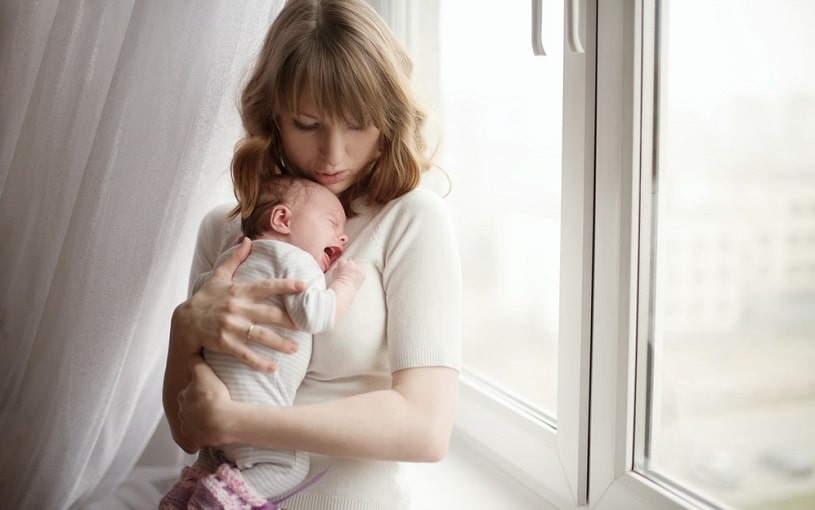Cymbalta is a medication mainly used for depression and anxiety, but it also has many off-label uses. Many people in the USA suffer from some form of mental health disorder, like anxiety or depression; and it wouldn’t be surprising that there are pregnant women among them. Such patients might be wondering whether they can continue treatment with Cymbalta during pregnancy.
Table Of Contents:
There is no simple answer to this question, as it will depend on many factors. Each case is unique, and sometimes antidepressants can increase the risk. While Cymbalta and pregnancy are not considered entirely safe, in certain cases, the benefits can outweigh the risks.
So, finally, can you take Cymbalta while pregnant? Does it pose any risk to the mother or fetus? Find out the necessary information about Duloxetine and pregnancy here.
Cymbalta And Pregnancy
Duloxetine has significant effects on the physical and psychological well-being of pregnant women. While the lack of research makes it impossible to state that Cymbalta is completely unsafe for pregnant women and their babies, its benefits may outweigh the risk. Considering Duloxetine uses, an unplanned interruption in treatment can be extremely harmful.
Depression during pregnancy has been linked to increased rates of miscarriage, premature delivery, and abnormally high blood pressure.
Therefore, it is crucial to consult a medical professional and determine whether the woman should continue using Duloxetine.
Is It Safe To Take Cymbalta During Pregnancy?
Cymbalta pregnancy category, according to the FDA, is C. It means that adverse health effects on the fetus have been discovered during animal studies. Still, there is no adequate data available to assess the risks in humans. According to self-reported cases, duloxetine HCl has the potential of causing birth defects and complications. However, no evidence supports a direct connection between those occurrences and the medication.
What To Do If a Woman Has Already Taken the Drug?
Cymbalta takes around three days on average to leave the person’s body. Therefore, disrupting the course of treatment will not be beneficial for a pregnant woman or her unborn baby. On the contrary, such a sudden stop in duloxetine therapy can result in suicidal behaviors, relapse of depression or anxiety, and other tremendously harmful consequences for the mother and her child. After the woman has taken the drug, she should contact her doctor to determine whether Duloxetine is necessary during pregnancy.
What Happens If The Father Is Taking Cymbalta When The Child Is Conceived?
There are no known risks to pregnancy in case of the father taking the medication. It is generally accepted there is no risk in the father taking Duloxetine and pregnancy. That is because the baby only has a blood connection with the mother.
How Does Taking Cymbalta While Pregnant Affect The Fetus?
Despite the Cymbalta pregnancy category defined by the FDA, there is a possibility that it will negatively affect the fetus. On the other hand, depression can affect it even worse. For that reason, it’s worth knowing all the hazards.
Miscarriage Or Stillbirth
Depression is known to increase the chances to miscarry, making it harder to distinguish between the effects of the condition and Duloxetine. However, considering Cymbalta and pregnancy, the results of two studies on the matter suggest a slight increase in a pregnant woman’s chances of miscarriage if a woman is taking it during the first trimester.

Preterm Birth
According to the available data, Duloxetine doesn’t cause preterm birth and does not affect the newborn’s weight. Depression is linked to premature birth, which makes it inadvisable to disrupt duloxetine treatment without discussing it with a doctor.
Birth Defects
Currently, there is no known correlation between congenital disabilities and Duloxetine treatment during pregnancy. Several studies were conducted, and Duloxetine did not contribute to birth defects in any of them. The rate of congenital disabilities in one study was 3%, which is approximately the same as expected in the general population.
Persistent Pulmonary Hypertension of the Newborn (PPHN)
Persistent pulmonary hypertension of the newborn is sometimes observed in infants of women who use SSRIs during pregnancy. Duloxetine might slightly increase the risk of this rare condition. PPHN occurs in approximately one baby in a thousand and is frequently fatal. Professional medical opinions on the matter are split: some studies conclude that Duloxetine and many other antidepressants taken during pregnancy contribute to the risk of PPHN; others claim there is no supportive evidence to make that statement.
Problematic Development and Behavioral Issue
Behavioral and development problems are not observed in children of women who took Cymbalta during pregnancy. Short-term effects such as crying, sleep problems, and difficulty breathing might occasionally be present in such infants; however, they do not last long or result in lingering impairments. Still, studies are inconclusive on the matter of duloxetine safety when taken during pregnancy. The risk cannot be completely ruled out, and women need to discuss the benefits and hazards of Cymbalta and pregnancy with their doctor.
Other Health Hazards To The Child
Although Duloxetine is not linked to any congenital disabilities, certain side effects of Cymbalta might be present in the baby if the mother took the drug during pregnancy. Temporary symptoms occur rarely and mostly only when the woman uses Cymbalta near delivery. The baby might experience tremors, problems sleeping or eating, increased irritability, and jitteriness.
Withdrawal Symptoms at Birth
Neonatal abstinence syndrome (NAS) is a condition where a baby withdraws from a substance mother was taking during her pregnancy. Withdrawal symptoms at birth after Cymbalta or other SNRIs occur rarely but can present one of the more severe problems. NAS is more common with SSRI antidepressants. However, even with Duloxetine, the child might display hyperactive reflexes, yawning, and excessive high-pitched crying, as well as suffer from stuffy nose or sneezing.

Cymbalta use during pregnancy might also cause seizures in the baby. In one case report, a mother was treated with 90 mg of the drug daily. As a result, the newborn experienced jitters, increased reflexes, irritability, tremors, and increased muscle tone in all extremities. Duloxetine withdrawal syndrome was suspected in a baby.
The symptoms usually go away on their own after a few weeks. It is advised to closely monitor the baby’s condition during pregnancy when the woman is on Duloxetine and after birth.
Cymbalta And Breastfeeding
No adverse health effects were found in children whose mothers took the drug daily while breastfeeding. So there is no proven connection between side effects and Cymbalta and breastfeeding. Duloxetine is not absent from the milk, but the amount of the drug that the baby ingests is too small to affect health. Research suggests that it is unreasonable to discontinue the treatment while breastfeeding unless the baby displays disturbing symptoms.
In some instances, the risk might be presented not by the antidepressant but by specific Duloxetine drug interactions with other medications. If the mother is prescribed any other medications, it is necessary to monitor the baby for drowsiness, poor weight gain, and other potential side effects. In this case, Cymbalta and breastfeeding may cause adverse health reactions.

Finally, if there are persistent concerns about the baby’s health, the mother should discuss alternative treatment options with her healthcare provider. Certain SSRIs such as Zoloft and Paxil act similarly to Duloxetine but are deemed to be among the safest antidepressant medicines for nursing women. However, when the signs of drug misuse are detected, it is critical to find drug treatment to avoid severe consequences.
Medical Consultation Is Necessary
Duloxetine and pregnancy have an ambiguous relationship. This medication belongs to the FDA category C, meaning that the risks cannot be ruled out. However, there is no direct evidence that suggests the negative impacts of Cymbalta on pregnancy. Breastfeeding while taking medicine is also considered generally safe. While there is always room for risk, the effects of depression and anxiety on a woman can sometimes be more harmful to the baby than treatment with the antidepressant. Therefore, only a qualified medical professional can determine whether the benefits of Duloxetine during pregnancy will outweigh the potential risks to the child in every individual case. In case of any severe reaction of the organism, it is required to contact the drug facility to get help.
Hope Without Commitment
Find the best treatment options. Call our free and confidential helpline
Most private insurances accepted
Page Sources
- Christopher Bullock, MD, Carolyn A. Bernstein, MD, FAHS, Harvard Health Publishing. Discontinuation syndrome and antidepressants. 2019. https://www.health.harvard.edu/blog/discontinuation-syndrome-and-antidepressants-2019040416361
- Hoog, S. L., Cheng, Y., Elpers, J., & Dowsett, S. A. (2013). Duloxetine and pregnancy outcomes: safety surveillance findings. International journal of medical sciences, 10(4), 413. https://pubmed.ncbi.nlm.nih.gov/23471302/
- W‘t Jong, G., Einarson, T., Koren, G., & Einarson, A. (2012). Antidepressant use in pregnancy and persistent pulmonary hypertension of the newborn (PPHN): a systematic review. Reproductive toxicology, 34(3), 293-297. https://pubmed.ncbi.nlm.nih.gov/22564982/
- Jill Martin RN, David Osborn, Health Sydney, Local Health District, Newborn Infants Exposed to SSRI/SNRI Antidepressant Medication during Pregnancy and Lactation 2020. https://www.slhd.nsw.gov.au/RPA/neonatal%5Ccontent/pdf/guidelines/Maternity_Antidepressant_Guidelines_SLHD_GL2020_028.pdf
- Abdy, N. A. (2013). Neonatal withdrawal syndrome in a neonate following in utero exposure: case report. Reactions, 1473, 18-12. https://www.proquest.com/openview/7f2da66e3dea2d689f3ec2a6a176b98f/1?pq-origsite=gscholar&cbl=43703
- Drugs and Lactation Database (LactMed) [Internet]. Bethesda (MD): National Library of Medicine (US); 2006-. Duloxetine. [Updated 2021 Feb 15]. Available from: https://www.ncbi.nlm.nih.gov/books/NBK501470/
- Andrade, C. (2014). The safety of duloxetine during pregnancy and lactation. The Journal of clinical psychiatry, 75(12), 1423-1427. https://pubmed.ncbi.nlm.nih.gov/25551238/
- Briggs, G. G., Ambrose, P. J., llett, K. F., Hackett, L. P., Nageotte, M. P., & Padilla, G. (2009). Use of duloxetine in pregnancy and lactation. Annals of Pharmacotherapy, 43(11), 1898-1902. https://pubmed.ncbi.nlm.nih.gov/19809008/
- Sugiura-Ogasawara, M., Furukawa, T. A., Nakano, Y., Hori, S., Aoki, K., & Kitamura, T. (2002). Depression as a potential causal factor in subsequent miscarriage in recurrent spontaneous aborters. Human Reproduction, 17(10), 2580-2584. https://pubmed.ncbi.nlm.nih.gov/12351532/

 Authored by
Authored by  Reviewed by
Reviewed by 

